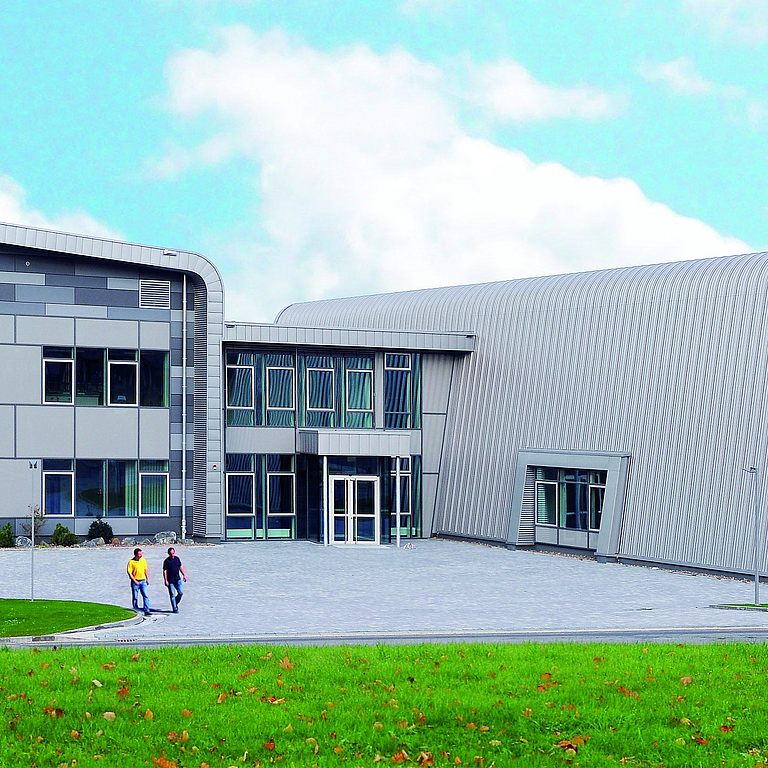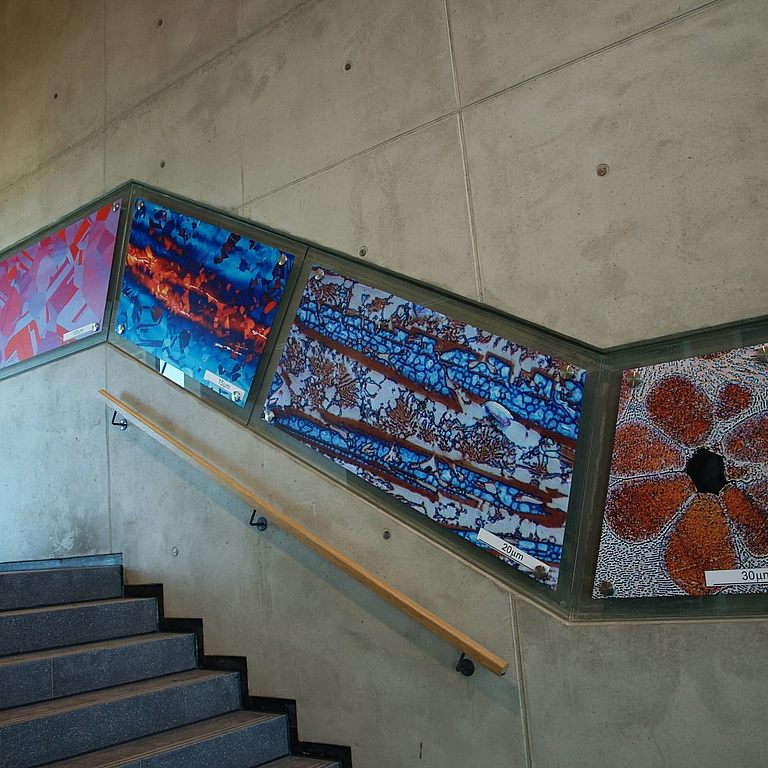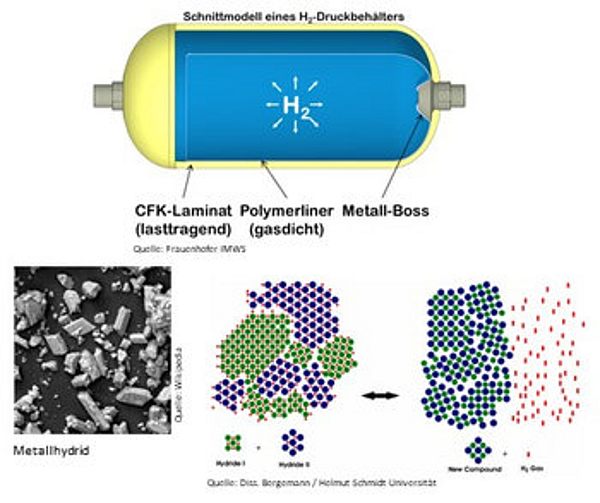Research cluster
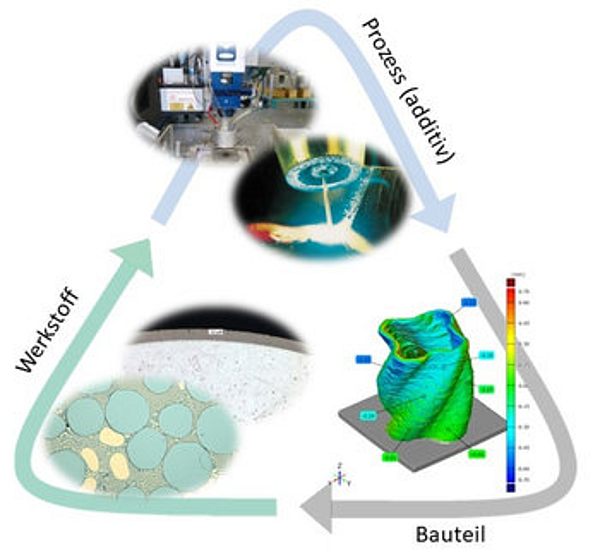
Multifunctional metal-based structures
- Manufacturing of components from multi-material structures with
- different metallic materials
- non-metallic materials in metallic matrix
- Generation of structures with local property adaptation
- Adjusted physical / chemical / mechanical properties
- Targeted adjustment / use of cavities / porosities
- Improved surface properties (e.g. wear, friction, etc.)
- Development of suitable starting materials / powders
- Alloy development, use of additives (fluxes, etc.)
- Surface properties / morphology of additive materials (shape-dependent e.g. through active grinding, plasma treatment, coating)
- Creation of freedom in manufacturing technology by focusing on the use of additive manufacturing processes: Laser sintering, laser melting, Wire Arc Additive Manufacturing (WAAM).
- In-situ influencing of component properties in the manufacturing process itself (path planning, energy input, thermal cycles, etc.)
Contact: Prof. Dr.-Ing. Volker Wesling
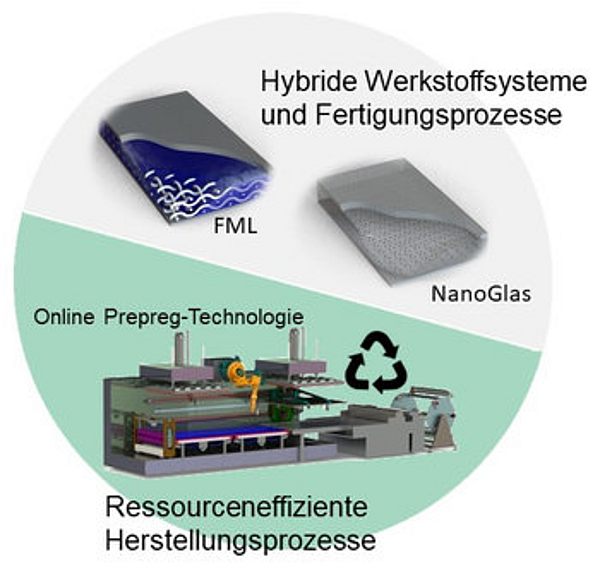
Hybrid material composites and fiber composite systems
- Development of new multi-material systems with inorganic top layer and reinforced polymer core
- Acoustic damping (FMLs)
- High transparency with shatter and break-in resistance (NanoGlas)
- Application-oriented structural optimization
- Development of novel manufacturing technologies for fiber composites (focus: resource efficiency/recycling)
- Development and optimization of manufacturing processes for MMS
- Integration of fiber and/or nanoparticle reinforcement
- Combination of different manufacturing processes into a single-stage variothermal forming and joining process (FMLs)
- Use of sterically stabilized, monomer-specific functionalized nanoparticles for property optimization (NanoGlass)
- Research into the unique online prepreg technology at CZM (objective: zero-waste production / environmentally oriented composite production with consistent material properties)
Contact person: Prof. Dr.-Ing. Gerhard Ziegmann
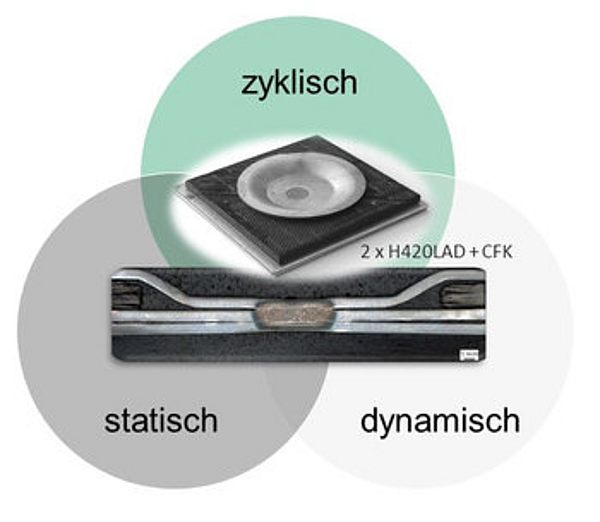
Lightweight construction concepts and material systems
- Identification and further development of approaches to material and conceptual lightweight construction
- Overcoming incompatibilities along the entire process chain from material to component
- Generation of energy-efficient lightweight structures with special consideration of all load cases and material states
- Development and production of fiber composite structures (injection molding, vacuum infiltration, resign transfer molding, wet molding)
- Adaptation of material systems and filler materials
- Realization of metallic composite designs and composite structures by means of low-heat joining processes (arc and plasma processes, pressure welding, mechanical joining and hybrid joining processes)
- Proof of properties under static, cyclic and dynamic loading → Inclusion of material conditions (e.g. aging)
Contact: Dr.-Ing. Henning Wiche
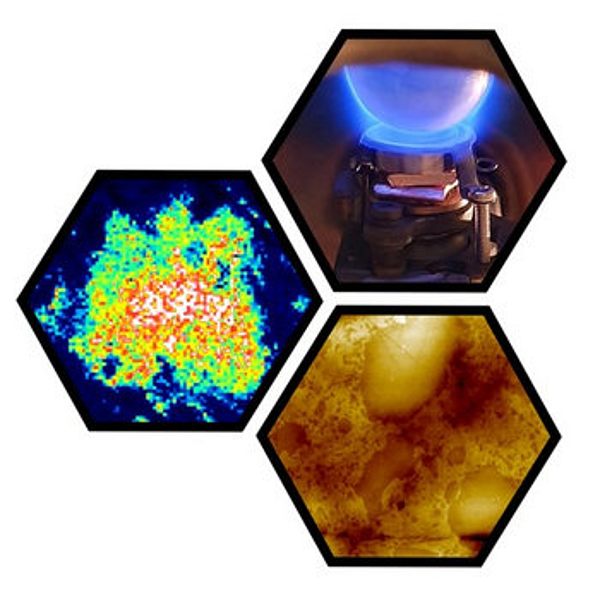
Surface analysis and functionalization
- All materials interact with their environment via their surfaces
- Many material and material-specific properties such as adhesion, wear or corrosion resistance are significantly determined by the surface
- Challenge: High demand for control and insight into the physicochemical processes on surfaces
- Targeted use of various analytical methods and techniques from the field of surface physics and materials analysis
- Dielectrically hindered discharges (DBE plasmas) for modification and functionalization of surfaces
Contact: Prof. Dr. Wolfgang Maus-Friedrichs / Dr. rer. nat. René Gustus
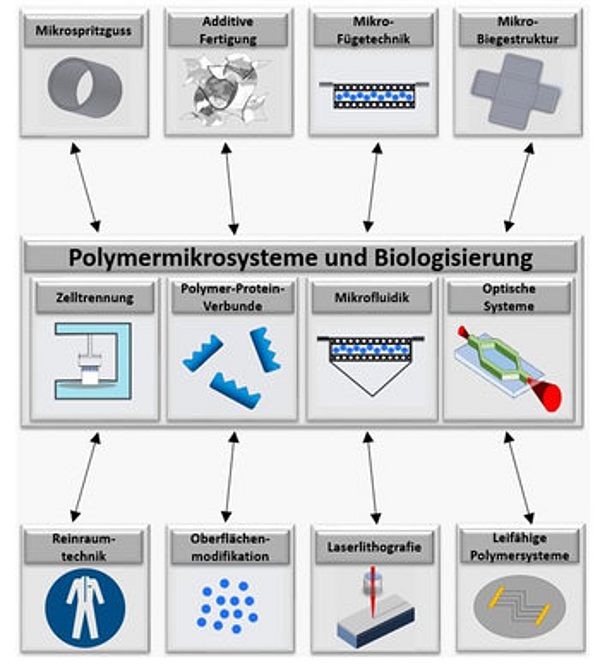
Future cluster: polymer systems, microsensor technology and biologization
- Modeling and simulative design of complex geometries and microcomponents for high-precision applications
- Production and optimization of the process chain by means of additive manufacturing, laser lithography, micro injection molding and micro joining technology, taking into account specific boundary conditions
- Material-technical
- Biological/Medical
- Optical/Sensory
- Development of novel material combinations, such as polymer-protein composites, for biological and medical applications under clean room conditions
- Development of foldable substrates for optical applications
- Development of conductive polymer systems for microsensor technology
- Research and development of coupling mechanisms for material combinations in various fields, such as medical technology, optical systems, MID technology, etc.
Future cluster: Solid and pressure-based hydrogen storage systems
- Reliable storage options are needed for large-scale use of green hydrogen as an energy carrier
- Areas of application are: Energy industry, mobility sector, production sector
- Problem: high diffusibility, high risk potential
- Pressure accumulators using hybrid material systems
- Development of novel diffusion barriers
- Consideration of lightweight construction aspects (metal /FVK laminate mixed construction methods)
- Solid state storage based on metal hydride
- Use of DBD plasmas to support storage and retrieval
